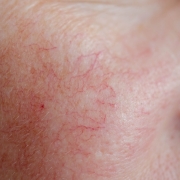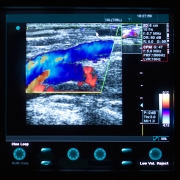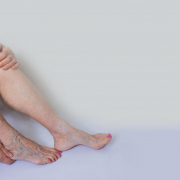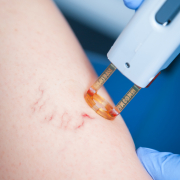Restless Leg Syndrome and Vein Disease
Restless Leg Syndrome (RLS) is a poorly understood but common patient complaint. Affecting 10-15% of Americans, it is characterized by the irresistible urge to move your legs to stop uncomfortable or odd sensations. A patient’s legs become uncomfortable when lying down or sitting and some describe it as a “creeping, tingling or burning” sensation. Women are more affected by RLS than men. Moving the legs helps it feel better, but not for long.
In the United States, more than half of RLS patients are treated with several classes of neurologically directed medications with variable results and occasional side effects. However, the evidence in support of a purely neurological cause of RLS is still not compelling.
Recent Studies
There have been several recent and well done studies that reinforce not only the strong presence of documented chronic venous disease in patients with criteria established Restless Leg Syndrome, but also a surprisingly effective treatment for RLS when venous insufficiency is also found in these patients. The first study (McDonagh, B., et. Al., Vol 22, No 4, Phlebology, 2007) documents the close association between patients who meet the International RLS Study Group for RLS and are found to have ultrasound documented chronic venous insufficiency (perhaps nearly 50%).
The second study (Hayes, C.A., et. Al., Vol 23, Phlebology, 2008) takes this information and actually studies the effect of treating established RLS patients with endovenous laser ablation. The results are quite good in eliminating or greatly diminishing RLS symptoms. Dr. Hayes’ and Dr. McDonagh’s research groups have been quite instrumental in developing both diagnostic and treatment recommendations for RLS.
Diagnosing Restless Leg Syndrome
2012 Revised IRLSSG Diagnostic Criteria for RLS
Restless legs syndrome (RLS), a neurological sensorimotor disease often profoundly disturbing sleep and quality of life has variable expression influenced by genetic, environmental and medical factors. The symptoms vary considerably in frequency from less than once a month or year to daily and severity from mildly annoying to disabling. Symptoms may also remit for various periods of time. RLS is diagnosed by ascertaining symptom patterns that meet the following five essential criteria adding clinical specifiers where appropriate.
Essential Diagnostic Criteria (all must be met)
1. An urge to move the legs usually but not always accompanied by or felt to be caused by uncomfortable and unpleasant sensations in the legs.1, 2
2. The urge to move the legs and any accompanying unpleasant sensations begin or worsen during periods of rest or inactivity such as lying down or sitting.
3. The urge to move the legs and any accompanying unpleasant sensations are partially or totally relieved by movement, such as walking or stretching, at least as long as the activity continues.
4. The urge to move the legs and any accompanying unpleasant sensations during rest or inactivity only occur or are worse in the evening or night than during the day.
5. The occurrence of the above features are not solely accounted for as symptoms primary to another medical or a behavioral condition (ie. Myalgia, venous stasis, leg edema, arthritis, leg cramps, positional discomfort, habitual foot tapping). 5
Specifiers for Clinical Course of RLS
A. Chronic-persistent RLS: Symptoms when not treated would occur on average <2/week for the past year.
B. Intermittent RLS: symptoms when not treated would occur on average <2/week, with at least 5 lifetime events.
Specifier for Clinical Significance of RLS
The symptoms of RLS cause significant distress or impairment in social, occupational, educational or other important areas of functioning by the impact on sleep, energy/vitality, daily activities, behavior, cognition or mood.
Restless Leg Syndrome has a strong documented association of venous disease. The data that endovenous laser ablation of venous insufficiency in the RLS patient is effective in eliminating RLS symptoms is good news for our patients.
Source: Dworkin, Gary MD, “Restless Leg Syndrome may indicate vein disease,” VeinTherapyNews, October/November 2011.
Get Screened for Vein Disease in Kansas City
Get a screening for vein disease since it could be the cause of your RLS. At Missouri Vein Specialists in Kansas City, MO our treatment of RLS patients who have chronic venous insufficiency has been quite successful. If you are suffering from RLS contact us today for a vein consult and we can help you get a better nights sleep. Call us at 816-792-3400.












